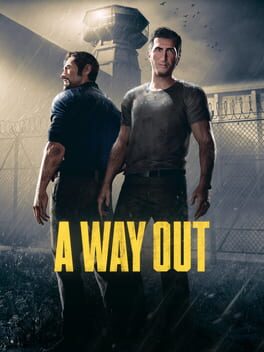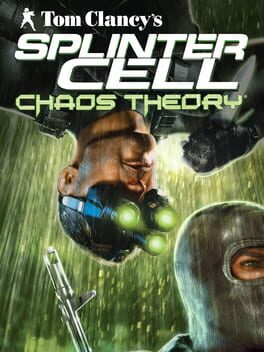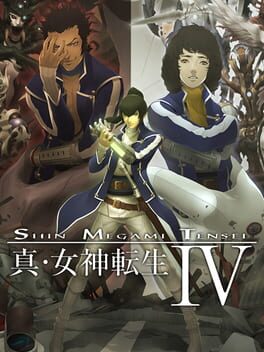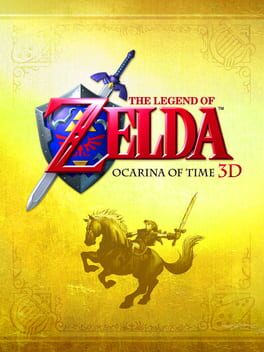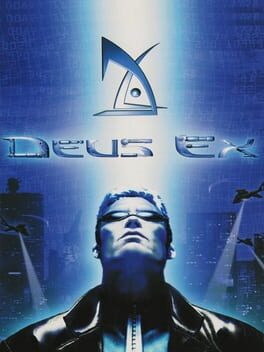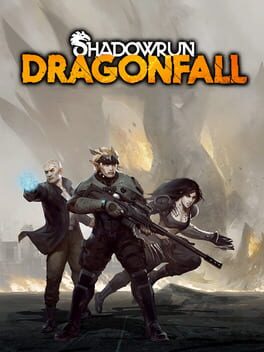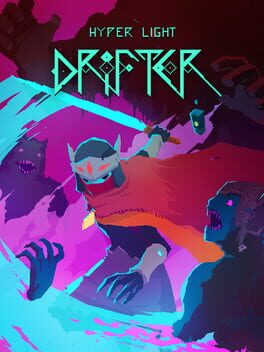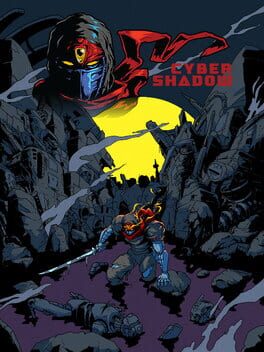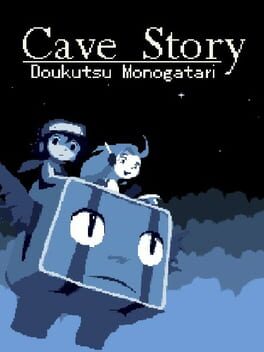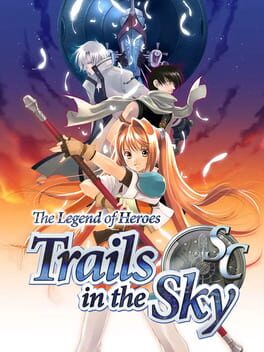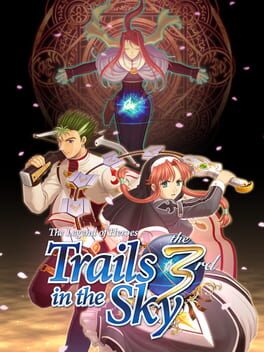synthezoid
85 reviews liked by synthezoid
A Way Out
2018
In a bygone age where “See you in Rayman 4!” had yet to morph from an innocuous sequel hook into the cruellest lie since the Trojan Horse, Ubisoft were on a hot streak that few developers can claim to have had. It's not uncommon to scoff at them now, but much of the key talent that brought us so many instant classics of this era are still there, including Chaos Theory’s very own Clint Hocking. The personal touch of developers like him has become harder to parse with Ubi’s exponential growth and shifting priorities, but it’s hard not to retain a bit of goodwill so long as at least some of those who made Chaos Theory are still there, because it’s probably the best stealth game ever made.
Contrary to what one might think, Splinter Cell’s chief influence isn’t a certain other tactical espionage stealth action series, but rather Looking Glass. It’s not hard to imagine why – to this day, Thief has better sound design than any game that isn’t either its own sequel or System Shock 2, but the need for its state of the art reverberation system stemmed out of its first person perspective. If immersion is the name of the game, nothing sells it quite like having to track where enemies are through carefully listening the same way Garrett would, as opposed to having a disembodied floating camera that can see around corners do the work for you. How does Sam’s game measure up to that, given it’s in third person?
The answer is through a different kind of genius. In Chaos Theory, every individual part of Sam’s body is affected by light/darkness independently. You might not initially notice this until you arouse suspicion by peeking his head just a little bit too far out of a crawl space into a brightly lit area, or accidentally position him in such a way that his leg’s poking out from around a corner. Even now, it’s exceedingly rare for dynamic lighting to be anything more than window dressing, and yet Chaos Theory was making full use of its potential gameplay applications when N-Gage ports still existed. It goes further than this, too. Heavily armed enemies can not only light flares, but throw them in the direction they last saw or heard you, while others can flick on a torch that they’ll point at various angles as they follow your tracks. No other stealth game can match the anxiety Chaos Theory instils as you cling to a wall and hope that the guard a hair’s breadth away doesn’t turn in your direction while he's holding a light.
It’s important to note that despite its influences, Chaos Theory isn’t an immersive sim ᵃⁿᵈ ⁿᵒ ᴴᶦᵗᵐᵃⁿ, ᴹᴳˢ⁵ ᵃⁿᵈ ᴮʳᵉᵃᵗʰ ᵒᶠ ᵗʰᵉ ᵂᶦˡᵈ ᵃʳᵉⁿ'ᵗ ᵉᶦᵗʰᵉʳ ᵇᵘᵗ ᵗʰᵃᵗ'ˢ ᵇᵉˢᶦᵈᵉˢ ᵗʰᵉ ᵖᵒᶦⁿᵗ. It instead opts for a middle ground between their emergent problem solving and its own predecessors’ affinity for pre-baked scripted set pieces. This may sound eclectic on paper, but it works remarkably well in terms of pacing. Relax one moment as you clamber up and down several floors of an office block in any order and through whatever means you please, but be ready the next when you have to switch the power back on and quickly scramble out of the now gleaming room as a squad of guards floods in. Granted, there’s a slight degree of inconsistency in this respect. The bank level’s famously bursting with alternate pathways to accommodate more play styles than you can shake a stick at, while the end of the bathhouse level could drive even an actual Third Echelon agent to forsake his non-lethal playthrough, but this balancing of peaks and valleys overall allows for lots of creative, freeform solutions while still ensuring that there’ll always be segments which demand your attention even on repeat playthroughs.
The fact that Chaos Theory manages to stay so engaging from start to finish without giving you any new equipment along the way is a testament to this, but other areas of the game deserve as much attention as its level design. For instance, no matter how many people are aware of how much Amon Tobin outdid himself with this game’s music, it’s still not enough. This series of chords is Splinter Cell, as much as thick shadows and green goggles, and if it were distilled into a person they would assuredly be skulking about in the dark. The extra instrumentation which dynamically fades in and out according to enemies’ alertness level (my favourite example being this absolute tune) not only drives home his talent even further, but also acts as another way to communicate important information to the player if the increasingly copious sandbag checkpoints throughout the level hadn’t already clued you in. To put things in perspective, this may be the only example of Jesper Kyd’s involvement in a soundtrack not being the highlight.
Chaos Theory’s also a beneficiary of the time when different ports of one game would have exclusive features for no particular reason. I can’t speak for how it controls on console, but I can say that adjusting Sam’s movement speed with the mouse wheel is a fantastic alternative to the standard method of protagonists instantly becoming silent as soon as they crouch (to my surprise, it doesn’t work that way in real life). Combine it with a camera that gently shifts about to give you the best possible view depending on which direction Sam is moving in and the game feels like a dream to control. On PC you also have the added benefit of being able to toggle whether enemies speak in their native languages, a bit akin to Crysis’ hardest difficulty, which despite being such a minor feature seems like a really underutilised concept.
I’d be remiss not to mention the writing as well. While it’s fair to say that Chaos Theory probably isn’t a game you’d play for the story itself, it’s equally true that it wouldn’t be so beloved if its characters weren’t so charming, including the guards, whose responses to being interrogated are not just genuinely funny but also a glaring counterpoint to the notion that this series takes itself too seriously. Few voice actors understand their characters as well as Michael Ironside gets Sam Fisher. Every delivery of his is golden, whether grumbling in response to his support team constantly bullying him for being old or in the plot’s more cathartic moments. Given both that Ironside has now dabbed on cancer a second time and his recent-ish reprisals of the role in the form of Ghost Recon DLCs, one can only hope they get him to work his magic again in the first game’s upcoming remake.
Regardless of how that turns out, it’s nice to know that Splinter Cell has some kind of future again. Bringing back something old can have just as much value as creating something new, and while asking it to be as good as Chaos Theory is probably a tall order, all it really needs to do is be good enough to prove that pure stealth games still have a place in the mainstream. Sam has saved us from WW3 several times over by now, so hopefully he can also save his genre from the plague of waist-high grass.
Hedging my bets on this one – see you in Tom Clancy’s Splinter Cell® (TBD)!
Contrary to what one might think, Splinter Cell’s chief influence isn’t a certain other tactical espionage stealth action series, but rather Looking Glass. It’s not hard to imagine why – to this day, Thief has better sound design than any game that isn’t either its own sequel or System Shock 2, but the need for its state of the art reverberation system stemmed out of its first person perspective. If immersion is the name of the game, nothing sells it quite like having to track where enemies are through carefully listening the same way Garrett would, as opposed to having a disembodied floating camera that can see around corners do the work for you. How does Sam’s game measure up to that, given it’s in third person?
The answer is through a different kind of genius. In Chaos Theory, every individual part of Sam’s body is affected by light/darkness independently. You might not initially notice this until you arouse suspicion by peeking his head just a little bit too far out of a crawl space into a brightly lit area, or accidentally position him in such a way that his leg’s poking out from around a corner. Even now, it’s exceedingly rare for dynamic lighting to be anything more than window dressing, and yet Chaos Theory was making full use of its potential gameplay applications when N-Gage ports still existed. It goes further than this, too. Heavily armed enemies can not only light flares, but throw them in the direction they last saw or heard you, while others can flick on a torch that they’ll point at various angles as they follow your tracks. No other stealth game can match the anxiety Chaos Theory instils as you cling to a wall and hope that the guard a hair’s breadth away doesn’t turn in your direction while he's holding a light.
It’s important to note that despite its influences, Chaos Theory isn’t an immersive sim ᵃⁿᵈ ⁿᵒ ᴴᶦᵗᵐᵃⁿ, ᴹᴳˢ⁵ ᵃⁿᵈ ᴮʳᵉᵃᵗʰ ᵒᶠ ᵗʰᵉ ᵂᶦˡᵈ ᵃʳᵉⁿ'ᵗ ᵉᶦᵗʰᵉʳ ᵇᵘᵗ ᵗʰᵃᵗ'ˢ ᵇᵉˢᶦᵈᵉˢ ᵗʰᵉ ᵖᵒᶦⁿᵗ. It instead opts for a middle ground between their emergent problem solving and its own predecessors’ affinity for pre-baked scripted set pieces. This may sound eclectic on paper, but it works remarkably well in terms of pacing. Relax one moment as you clamber up and down several floors of an office block in any order and through whatever means you please, but be ready the next when you have to switch the power back on and quickly scramble out of the now gleaming room as a squad of guards floods in. Granted, there’s a slight degree of inconsistency in this respect. The bank level’s famously bursting with alternate pathways to accommodate more play styles than you can shake a stick at, while the end of the bathhouse level could drive even an actual Third Echelon agent to forsake his non-lethal playthrough, but this balancing of peaks and valleys overall allows for lots of creative, freeform solutions while still ensuring that there’ll always be segments which demand your attention even on repeat playthroughs.
The fact that Chaos Theory manages to stay so engaging from start to finish without giving you any new equipment along the way is a testament to this, but other areas of the game deserve as much attention as its level design. For instance, no matter how many people are aware of how much Amon Tobin outdid himself with this game’s music, it’s still not enough. This series of chords is Splinter Cell, as much as thick shadows and green goggles, and if it were distilled into a person they would assuredly be skulking about in the dark. The extra instrumentation which dynamically fades in and out according to enemies’ alertness level (my favourite example being this absolute tune) not only drives home his talent even further, but also acts as another way to communicate important information to the player if the increasingly copious sandbag checkpoints throughout the level hadn’t already clued you in. To put things in perspective, this may be the only example of Jesper Kyd’s involvement in a soundtrack not being the highlight.
Chaos Theory’s also a beneficiary of the time when different ports of one game would have exclusive features for no particular reason. I can’t speak for how it controls on console, but I can say that adjusting Sam’s movement speed with the mouse wheel is a fantastic alternative to the standard method of protagonists instantly becoming silent as soon as they crouch (to my surprise, it doesn’t work that way in real life). Combine it with a camera that gently shifts about to give you the best possible view depending on which direction Sam is moving in and the game feels like a dream to control. On PC you also have the added benefit of being able to toggle whether enemies speak in their native languages, a bit akin to Crysis’ hardest difficulty, which despite being such a minor feature seems like a really underutilised concept.
I’d be remiss not to mention the writing as well. While it’s fair to say that Chaos Theory probably isn’t a game you’d play for the story itself, it’s equally true that it wouldn’t be so beloved if its characters weren’t so charming, including the guards, whose responses to being interrogated are not just genuinely funny but also a glaring counterpoint to the notion that this series takes itself too seriously. Few voice actors understand their characters as well as Michael Ironside gets Sam Fisher. Every delivery of his is golden, whether grumbling in response to his support team constantly bullying him for being old or in the plot’s more cathartic moments. Given both that Ironside has now dabbed on cancer a second time and his recent-ish reprisals of the role in the form of Ghost Recon DLCs, one can only hope they get him to work his magic again in the first game’s upcoming remake.
Regardless of how that turns out, it’s nice to know that Splinter Cell has some kind of future again. Bringing back something old can have just as much value as creating something new, and while asking it to be as good as Chaos Theory is probably a tall order, all it really needs to do is be good enough to prove that pure stealth games still have a place in the mainstream. Sam has saved us from WW3 several times over by now, so hopefully he can also save his genre from the plague of waist-high grass.
Hedging my bets on this one – see you in Tom Clancy’s Splinter Cell® (TBD)!
Ocarina of Time is a landmark game for the entire video game industry. For a first step into 3D game design, this is unbelievable. Staples of game design that are now foundational pieces of the way that we experience games in the third dimension basically all got their start in this game. Things that we take for granted, like targeting systems and context sensitive button commands, which seem really basic now, all revolutionized the way that games could envelop a player into an experience seamlessly. The story is also a complete classic that doesn't get enough credit in the grander scheme of Zelda narratives. The subtlety and maturity with which this game handles its primary themes is really quite special, and it totally makes sense that so many people would associate this game with their childhoods in that respect. Visually, the 3DS version of this looks and runs great too.
It's unfortunate that I didn't have as fun of a time with this game as I was expecting. I've never truly finished Ocarina of Time to the very end, and I guess now it kind of makes sense to me in terms of why that is for me personally. Despite how important this game is to the industry that I love, I have to take issue with some aspects of it. While I'm sure it was huge at time of release, the overworld in this game is painfully bleak and empty. Hyrule field and the surrounding areas that serve as connectors to the main areas of the game may as well be glorified loading screens, as it feels like I'm doing nothing but pressing up on my circle pad and smashing the A button between dungeons. I understand that there are plenty of unique goodies scattered across each section of the world, but I seriously can't be bothered to seek them out when the movement of this game is so god damn slow in addition to the empty nature of the world.
The dungeons in this game are great, with the only real stinker being Jabu-Jabu's Belly, which is a terribly frustrating exercise in tedium. Other than that, the puzzles within each dungeon were excellent explorations of 3D space that stretched my brain consistently. Most of the bosses are complete garbage though, I'm not gonna lie. Whether they are hilariously easy or just really goddamn annoying is pretty much a coinflip for any given dungeon. Lastly, the combat in this game, while fun, can feel like a serious chore against a lot of the enemies that don't fight back very much yet can only be damaged when they let their guard down to attack. This results in waiting... a whole lot of waiting in combat. Stalfos are easily the worst offender as you can stand completely still for what feels like goddamn hours without them as much as moving a muscle. As a result, it really feels like combat is a weak point in this entry despite the fact that Link can use one of my favorite arsenals of items in any Zelda game.
The music and atmosphere of this game is next level though. This is a bit of a side note, but I wish Zelda would go back to putting deadass creepy shit in their games like the Bottom of the Well and the Shadow Temple; those areas are just dripping in atmosphere, and the same goes for other areas and dungeons like the Water Temple and Forest Temple.
Ultimately, I commend this game for being such a bold step into a brand-new dimension of gaming and being such a resounding success despite how badly something like this could have turned out; Nintendo absolutely knocked it out of the park and defined the entire future of gaming. It's just unfortunate that it seems to be showing a bit of its age in terms of scope and combat.
It's unfortunate that I didn't have as fun of a time with this game as I was expecting. I've never truly finished Ocarina of Time to the very end, and I guess now it kind of makes sense to me in terms of why that is for me personally. Despite how important this game is to the industry that I love, I have to take issue with some aspects of it. While I'm sure it was huge at time of release, the overworld in this game is painfully bleak and empty. Hyrule field and the surrounding areas that serve as connectors to the main areas of the game may as well be glorified loading screens, as it feels like I'm doing nothing but pressing up on my circle pad and smashing the A button between dungeons. I understand that there are plenty of unique goodies scattered across each section of the world, but I seriously can't be bothered to seek them out when the movement of this game is so god damn slow in addition to the empty nature of the world.
The dungeons in this game are great, with the only real stinker being Jabu-Jabu's Belly, which is a terribly frustrating exercise in tedium. Other than that, the puzzles within each dungeon were excellent explorations of 3D space that stretched my brain consistently. Most of the bosses are complete garbage though, I'm not gonna lie. Whether they are hilariously easy or just really goddamn annoying is pretty much a coinflip for any given dungeon. Lastly, the combat in this game, while fun, can feel like a serious chore against a lot of the enemies that don't fight back very much yet can only be damaged when they let their guard down to attack. This results in waiting... a whole lot of waiting in combat. Stalfos are easily the worst offender as you can stand completely still for what feels like goddamn hours without them as much as moving a muscle. As a result, it really feels like combat is a weak point in this entry despite the fact that Link can use one of my favorite arsenals of items in any Zelda game.
The music and atmosphere of this game is next level though. This is a bit of a side note, but I wish Zelda would go back to putting deadass creepy shit in their games like the Bottom of the Well and the Shadow Temple; those areas are just dripping in atmosphere, and the same goes for other areas and dungeons like the Water Temple and Forest Temple.
Ultimately, I commend this game for being such a bold step into a brand-new dimension of gaming and being such a resounding success despite how badly something like this could have turned out; Nintendo absolutely knocked it out of the park and defined the entire future of gaming. It's just unfortunate that it seems to be showing a bit of its age in terms of scope and combat.
Deus Ex
2000
What makes Deus Ex so impressive isn't just the amount of choices you're given, it's the way that they're presented to you and how they entertain your curiosity. When the game responds to your decisions from such an early point, it sets the tone of the rest of the experience: if it'll call you out for something as inconspicuous as messing around with the bathrooms, what else is it going to track? What other actions can you get it to react to?
It's this relationship of your curiosity being encouraged and then rewarded that defines Deus Ex. Although there are extrinsic bonuses for exploration (upgrade points, weapon mods, etc.), most of my motivation was intrinsic. There was never a time where I stumbled upon an unlocked vent and didn't want to see where it lead. Deus Ex's story deserves its own review, but the gameplay is about you and the designers. It's about inspecting every painting in a building and trusting that one of them will have a secret vault behind it. It's about lockpicking your way into a building at the front door before stopping yourself and asking "Wait, I bet there's another way" and reloading your save to see how else you can break in.
Sometimes it's very unbalanced, occasionally frustrating, jarringly unintuitive (especially considering the extended tutorial sequence), many aspects that would normally hold it back. But it doesn't need to be perfect, because these issues ultimately become drowned out as you're constantly making new decisions, answering new questions, and testing how mechanics interact with each other. Your imagination keeps being sparked and once you reach a certain point these shortcomings will suddenly stop mattering--nothing can break that unstoppable desire to see what the game has to offer next as everything finally clicks together.
This is, again, not even beginning on the story, atmosphere, or especially the music (because holy shit the OST is phenomenal). The gameplay alone is fantastic but the experience as a whole is just as special and is absolutely worth your time if you can get past some initial frustrations. The payoff is worth it.
It's this relationship of your curiosity being encouraged and then rewarded that defines Deus Ex. Although there are extrinsic bonuses for exploration (upgrade points, weapon mods, etc.), most of my motivation was intrinsic. There was never a time where I stumbled upon an unlocked vent and didn't want to see where it lead. Deus Ex's story deserves its own review, but the gameplay is about you and the designers. It's about inspecting every painting in a building and trusting that one of them will have a secret vault behind it. It's about lockpicking your way into a building at the front door before stopping yourself and asking "Wait, I bet there's another way" and reloading your save to see how else you can break in.
Sometimes it's very unbalanced, occasionally frustrating, jarringly unintuitive (especially considering the extended tutorial sequence), many aspects that would normally hold it back. But it doesn't need to be perfect, because these issues ultimately become drowned out as you're constantly making new decisions, answering new questions, and testing how mechanics interact with each other. Your imagination keeps being sparked and once you reach a certain point these shortcomings will suddenly stop mattering--nothing can break that unstoppable desire to see what the game has to offer next as everything finally clicks together.
This is, again, not even beginning on the story, atmosphere, or especially the music (because holy shit the OST is phenomenal). The gameplay alone is fantastic but the experience as a whole is just as special and is absolutely worth your time if you can get past some initial frustrations. The payoff is worth it.
To this day, no RPG has made me feel an overwhelming sense of dread the way this game's antagonists instilled in me at the end of the first act. To this day no game has made me truly feel the shift from being clueless, powerless, and on the back foot to gaining the upper hand, having an army at my back, and giving the powers that be the boot up their ass they deserve the way this game has. To this day, I have not fallen in love with my party in an RPG the way I have the characters in Shadowrun: Dragonfall.
Rarely in an RPG has a game's reactivity rewarded me (or punished me) for my narrative and mechanical decisions the way that this game does. The player character arc in this game is unmatched. The transition from being the new kid on the block to the Kreuzbasar truly feeling like home is something that I haven't seen any other RPG manage to successfully replicate to this degree, which I think is a product of this game's unflinching, emphatic focus on hope in the face of overwhelming odds.
This game is secretly one of the greatest computer RPGs ever made and tragically, the world simply doesn't know. Discover it for yourself.
Rarely in an RPG has a game's reactivity rewarded me (or punished me) for my narrative and mechanical decisions the way that this game does. The player character arc in this game is unmatched. The transition from being the new kid on the block to the Kreuzbasar truly feeling like home is something that I haven't seen any other RPG manage to successfully replicate to this degree, which I think is a product of this game's unflinching, emphatic focus on hope in the face of overwhelming odds.
This game is secretly one of the greatest computer RPGs ever made and tragically, the world simply doesn't know. Discover it for yourself.
Hyper Light Drifter
2016
Cyber Shadow
2021
Cyber Shadow is an exemplary action platformer. The game acutely understands what makes this gameplay style tick and executes on it brilliantly. The game takes a while to truly come into its own, and the story is overwrought, but the pure gameplay experience is exceptional.
The set pieces, particularly in the back half, are dazzling. The movement and combat are exacting. The gameplay mechanics unfold in a way that empowers the player. The difficulty is tough but fair, and totally scalable. The pixel art is stunningly beautiful. The soundtrack KICKS, especially Mekacity Docks. Cyber Shadow is a smooth, precise experience that Mechanical Head games executed on elegantly.
The set pieces, particularly in the back half, are dazzling. The movement and combat are exacting. The gameplay mechanics unfold in a way that empowers the player. The difficulty is tough but fair, and totally scalable. The pixel art is stunningly beautiful. The soundtrack KICKS, especially Mekacity Docks. Cyber Shadow is a smooth, precise experience that Mechanical Head games executed on elegantly.
Cave Story
2004
One of the first “only one guy made this” indie titles and it shows in ways both good and bad. Cave Story has such a unique identity, but simultaneously is hamstrung by some truly bizarre design choices. The true ending’s requirements are entirely unintuitive without the use of a guide and the game does not remotely prepare you for the difficulty spike in the final level. Despite these shortcomings, it’s still ultimately a lovely experience and a true inspiration for game devs with a wacky idea and a little determination.
